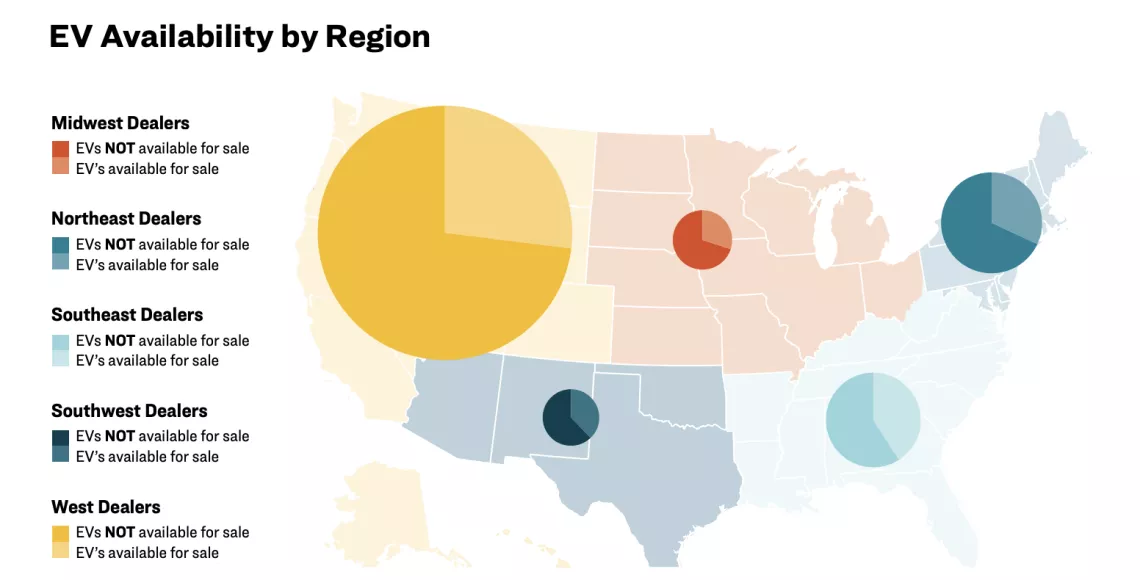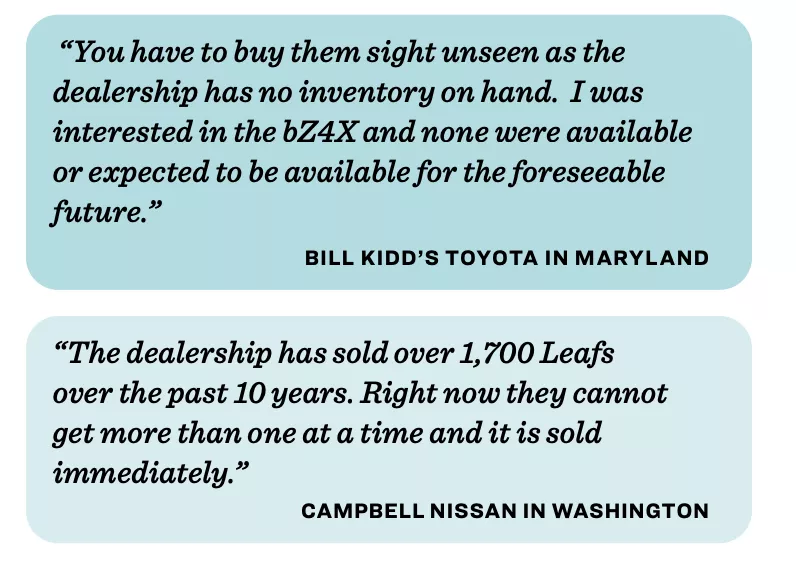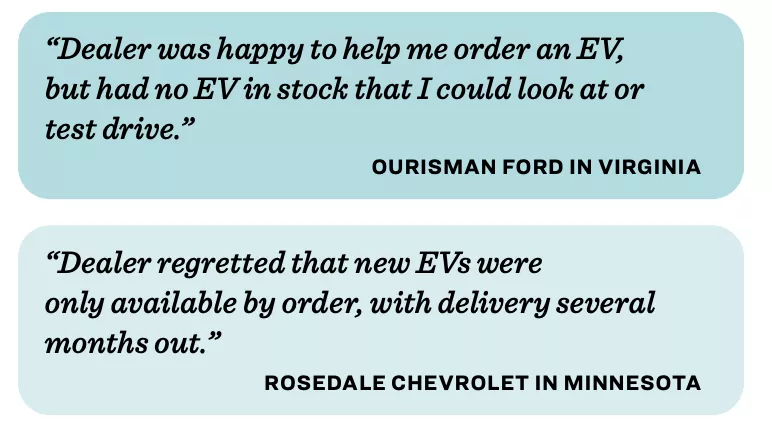The buzz around electric vehicles (EVs) is getting hard to ignore. More and more people want to buy an electric car, with demand high across racial and ethnic groups. Economists predict we’ve reached a tipping point: with EV sales making up more than 5 percent of the country’s car sales every month last year, and reaching 10 percent in December, we’re likely to see EV sales grow rapidly in the coming years.
And yet, if you’ve talked to anyone who’s tried to buy an EV in the last year or so, you’ve probably heard that the process ranged from frustrating to nearly impossible, with long waitlists and low stock.
The Sierra Club just published our latest Rev Up report on a nationwide survey of dealerships, and our results demonstrate this trend of low EV stock not meeting consumer demand: we found that two-thirds of car dealerships nationwide did not have a single EV available for sale.
Much has changed since the last time we conducted this survey in 2019: the start of a more climate-friendly administration, two historic climate and infrastructure bills, and an increasing number of states moving to adopt clean car standards. But the fact that two-thirds of dealerships don’t have an EV for sale on the lot makes clear that automakers are not investing enough in EV production or getting enough EVs to dealerships to match record-high consumer demand.
Supply chain disruptions from the COVID-19 pandemic exacerbated the pre-existing problem of automakers failing to fully pivot to EVs. Our survey found that some car dealerships refuse or are still not ready to sell EVs to consumers. Of the 66 percent of car dealerships that did not have an EV for sale, 45 percent of those dealers reported they would not offer an EV for sale regardless of automaker allocation and supply chain constraints.

Our survey showed that EV availability varies by region: only 27 percent of dealerships in the west had an EV available for sale, up to 41 percent in the Southeast. However, EV sales in the West were at least twice as high as in any other region in 2022, indicating that the low availability is a result of high consumer demand and sales turnover.

Some automakers are embracing the EV future, while others are dragging their feet – a fact evident in our dealership survey results. Mercedes-Benz (owned by Daimler AG) had the best EV availability among the groups we surveyed: 90 percent of Mercedes-Benz dealerships had an EV available for sale. At the other end of the spectrum, Toyota and Honda had the worst results: only 11 percent of Honda dealers and 15 percent of Toyota dealers had an EV available for sale.
An assessment by InfluenceMap ranks Toyota as the worst among the world’s largest automakers on climate policy engagement, grading it a D due to political advocacy against electric vehicles and and the lowest projected share of zero-emission vehicles in its 2029 fleet.
Sierra Club has long been demanding that Toyota offer more electric vehicles, instead of lobbying against EV tax breaks and sales requirements. Earlier this year, in Australia, advocates filed a complaint with the Australian Competition and Consumer Commission against Toyota’s greenwashing.


The latest Rev Up report makes clear that automakers need to manufacture and deliver more EVs. With consumer demand at a record high and at least 1.9 million reservations or pre-orders for recently released EVs, it is unacceptable that two-thirds of the nation’s dealerships don’t have an EV available for sale. Forty-four percent of those dealers reported that they would offer EVs – if they could just get them onto their lots.
Automakers must increase EV options, inventory, and availability, while making their supply chains more resilient. They must provide better incentives for dealerships to sell EVs. Gasoline-powered cars are fueling the climate crisis and polluting our communities – so we can’t afford for automakers to slow down the EV revolution.
Note: Survey results by automakers are limited to companies with dealerships that we surveyed, and so do not include EV sales from companies like Tesla that sell cars directly to consumers. In this blog and the report, EVs include battery electric vehicles and plug-in hybrid electric vehicles.
